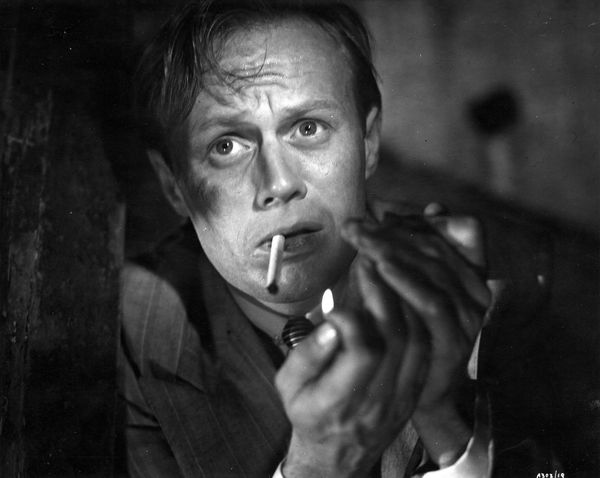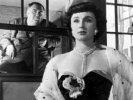Eye For Film >> Movies >> Night And The City (1950) DVD Review
Night And The City
Reviewed by: Angus Wolfe Murray
Read Angus Wolfe Murray's film review of Night And The City
Editor's note: This is a review of the 2007 BFI DVD release of the film. Read a review of the 2015 Blu-Ray release here.
Jules Dassin’s interview is one of the best. There are no hitches and some tasty revelations. Mellowed in his old age, he confesses for the first time that when he started filming Night And The City, he had not read Gerald Kersh’s book and when told later how much the author hated the film, he said he wasn’t surprised.

Darryl Zanuck at Fox knew that Dassin was a suspect in Senator McCarthy’s witch hunt and so whisked him off to London to make Night And The City, having been told, “You’ll never work here again.”
He didn’t know any English actors and so Douglas Fairbanks Jr was hired to cast the film, which Dassin insists he did extremely well. Gene Tierney was drafted at the last minute and her role as Richard Widmark’s girlfriend and singer in the club – her voice was dubbed for the only song – had to be written in immediately. She had just come out of a disastrous love affair and was marginally suicidal. Zanuck thought that work away from Hollywood would help with her recovery. She arrived in London, which was still suffering from rationing, with a baby and a bag of diapers.
Dassin’s praise for his leading man is effusive. “He was never given the opportunity to show his range.” He wanted to film Hamlet with Widmark, but because of the blacklist (“We were avoided like the plague”), it never happened.
Two Versions, Two Scores is a fascinating analysis by Chris Husted of the two versions of the film, with their separate scores, the American one by Franz Waxman and the English by Benjamin Frankel. Why this was done and why the film was edited differently for each country is not explained. Waxman’s music is urgent and dramatic, while Frankel’s is subtle and sensitive. Neither men met, nor knew what the other was doing. The result is like watching (and listening to) entirely different films.
Paul Duncan’s commentary track is so packed with information about “spiv fiction,” “spiv films,” Merle Oberon to play the Googie Withers part and the number of rewrites (“I lost count”) that you don’t notice he’s not talking about what is actually on the screen, but unburdening his vast knowledge of trivia and filmology. Tip to viewers: you don’t need to watch the film again to enjoy this track. Simply close your eyes and open your ears. It’s easy. And fun.
Reviewed on: 17 Nov 2007
















